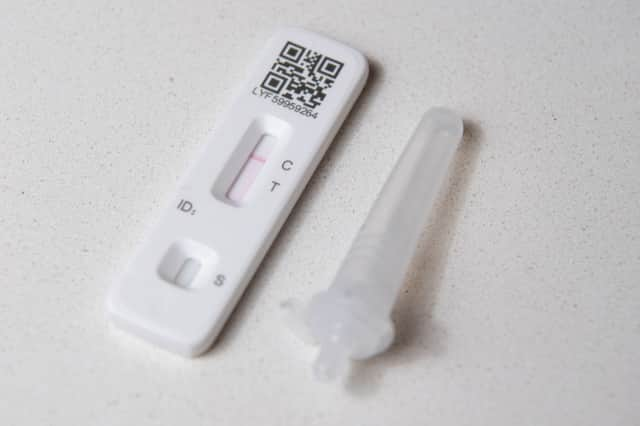The major changes to statutory sick pay rules that are coming into effect this week


Rules surrounding sick pay are changing with workers set to get less money if they are taking time off work due to falling ill with Covid.
Employees will not be able to claim statutory sick pay (SSP) from their first day’s absence from Thursday 24 March and will receive the money on day four instead.
Advertisement
Hide AdAdvertisement
Hide AdThe rule change is also affecting Employment and Support Allowance (ESA), with those eligible set to wait seven days to claim from next week.
What are the new rules to statutory sick pay?
Up until now, if you have been self-isolating or sick from Covid you have been able to get SSP from day one.
The government tweaked the rules when the pandemic hit in March 2020.
But from Thursday 24 March, if you are sick with Covid you will have to wait until day four for SSP to kick in.
Advertisement
Hide AdAdvertisement
Hide AdSSP is worth £96.35 a week for those eligible and it is paid by employers for up to 28 weeks after the first three days of illness - and if you are earning at least £120 a week.
SSP is the minimum you get under the law if you are unable to work, however your employer might pay more.
What other pay is being affected?
The temporary rule change for SSP has also applied to Employment and Support Allowance (ESA), which you can claim if an illness or disability is affecting your capacity to work.
People who are ill or disabled can apply for ESA help of up to £74.70 a week, depending on circumstances.
Advertisement
Hide AdAdvertisement
Hide AdWhen Covid hit, the government adjusted the benefit, allowing those eligible to make a claim from the first day they were absent from work - instead of the usual eighth day.
From next week there will be a seven day wait again for claiming ESA.
To be eligible for ESA you need to have worked either as a self-employed worker or as an employee, have paid enough National Insurance contributions (usually in the last 2 to 3 years), and you can’t get ESA if you claim Jobseeker’s Allowance or Statutory Sick Pay.
Why is it changing?
The changes have come as part of the government’s ‘Living with Covid’ strategy announced on 21 February 2022, marking the end of two years of lockdowns and testing.
Advertisement
Hide AdAdvertisement
Hide AdOther changes that have also been implemented recently are that there is no legal requirement anymore to self-isolate even if you test positive for Covid.
Free Covid tests are also no longer available from 1 April.
Alongside this, the £500 grant to help pay for bills if you were self isolating due to Covid came to an end in February.
A version of this article originally appeared on NationalWorld.com